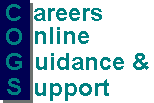When you get your first pay packet or pay cheque it may seem like a fortune but then you start to notice all the bits and pieces that are taken away - tax, NI (National Insurance), pension fund, etc. So what does it all mean?
Income Tax
Income Tax is a tax paid to the government. Everyone who earns money has to pay income tax. It covers the cost of services such as the police, the government, and teachers.
Income Tax is automatically deducted from your wage unless you are self-employed. Self-employed people still pay tax but they pay it direct to the tax office rather than have it deducted from earnings.
If the tax rate stands at 25% then for every £1 you earn over your personal allowance you must pay 25p in tax.
Personal Allowance
A Personal Allowance is the amount you are allowed to earn in a year before you start paying tax. This amount is set by the government and is split into regular monthly amounts. It can change when the government announces its budget. If you don't earn as much as the Personal Allowance, then you don't pay tax.
Sometimes you can claim extra allowances for certain costs items such as trade union fees. These extra allowances are added to your Personal Allowance, to make the level at which you start paying tax even higher. The Tax Office can advise you about your allowances.
Every April you will receive a P60 form. This shows how much tax you have paid in the previous year. If you leave a job during the year, your employer gives you a P45 form showing how much tax you have paid up to the time you leave. You need to give this form to your new employer.
National Insurance
National Insurance is a government fund. It is used to pay for certain benefits such as unemployment benefit or maternity benefit and it is automatically taken from your wage. Again, everyone pays it and the amount you pay depends on how much you earn. The more you earn, the more you pay. National Insurance rates can vary in the same way as tax according to the governments budget.
How does National Insurance benefit you?
If you have paid enough contributions into the National Insurance Scheme you are entitled to claim certain benefits yourself, such as sickness or unemployment benefit. Just before your sixteenth birthday you should receive a card from the DHSS. It's a card showing your National Insurance Number and you need to keep it safe.
National Insurance
http://WWW.ARTIMEDIA.CO.UK/wylowpay/NI.htm
Pensions schemes
It may seem a long way off and a funny thing to have to think about when you have just started work, but many companies have a pension scheme for their workers. This means that you pay a regular amount of money from your wage to the scheme. The amount you pay depends on the company's scheme. In return the company will pay you a pension or give you credits towards a pension for when you retire.
Getting Paid
Every employer has their own system for paying wages. Employers pay weekly, fortnightly or monthly. You may be paid in cash, but nowadays, most people are paid by cheque.You can arrange for your wage to be paid straight into your bank, if you have an account. Some employers will give you a choice.
Training Allowance
If you are on a training scheme and you are an unemployed trainee, then you will get a training allowance. The amount you get depends on your age and what you are doing. Your allowance probably won't be high enough for you to have to pay tax. You will be given all the details about how much you can get and how it is paid to you when you start your training.
Education
What happens if you go to college or university?
If you are a student you can get help on one of three ways: grants, loans or sponsorships. If you are entitled to a grant, the amount you get will depend on how old you are, whether you live at home, where you are studying and possibly what you are studying. Studying that is linked with work may be paid for by employers, TECs or Training Organisations.
Grants
There are significant changes being made to the student grants scheme at the moment.
For up to date information, visit the DfEE's web site (See Information and Resources).
Further Education Student Support
http://www.open.gov.uk/dfee/fessa/index.htm
Higher Education Student Support
http://www.open.gov.uk/dfee/support/index.htm
Loans
If you feel you can't manage on your grant, you can apply for a student loan when you have started your course. You can borrow a fixed amount each year but it all has to be paid back at some stage.
Information is available from the DfEE.
Student Loans
http://www.open.gov.uk/dfee/loans/loans.htm
Sponsorships and scholarships
One way to finance your studies is through a sponsorship or scholarship scheme. These are paid for by employers to give some financial backing and work experience to students studying for a first degree, HND or another course specified by the sponsor.






